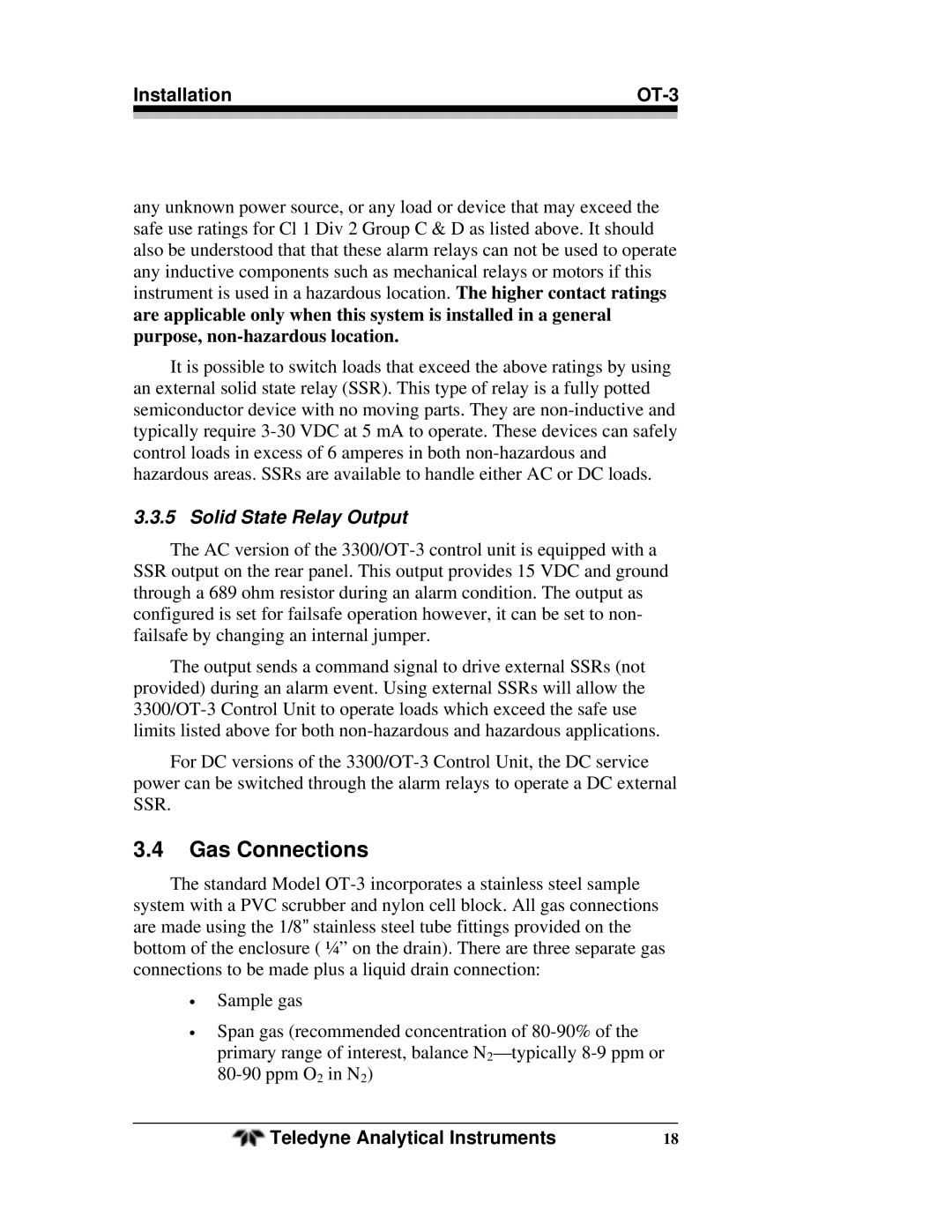any unknown power source, or any load or device that may exceed the safe use ratings for Cl 1 Div 2 Group C & D as listed above. It should also be understood that that these alarm relays can not be used to operate any inductive components such as mechanical relays or motors if this instrument is used in a hazardous location. The higher contact ratings are applicable only when this system is installed in a general purpose, non-hazardous location.
It is possible to switch loads that exceed the above ratings by using an external solid state relay (SSR). This type of relay is a fully potted semiconductor device with no moving parts. They are non-inductive and typically require 3-30 VDC at 5 mA to operate. These devices can safely control loads in excess of 6 amperes in both non-hazardous and hazardous areas. SSRs are available to handle either AC or DC loads.
3.3.5 Solid State Relay Output
The AC version of the 3300/OT-3 control unit is equipped with a SSR output on the rear panel. This output provides 15 VDC and ground through a 689 ohm resistor during an alarm condition. The output as configured is set for failsafe operation however, it can be set to non- failsafe by changing an internal jumper.
The output sends a command signal to drive external SSRs (not provided) during an alarm event. Using external SSRs will allow the 3300/OT-3 Control Unit to operate loads which exceed the safe use limits listed above for both non-hazardous and hazardous applications.
For DC versions of the 3300/OT-3 Control Unit, the DC service power can be switched through the alarm relays to operate a DC external SSR.
3.4Gas Connections
The standard Model OT-3 incorporates a stainless steel sample system with a PVC scrubber and nylon cell block. All gas connections are made using the 1/8” stainless steel tube fittings provided on the bottom of the enclosure ( ¼” on the drain). There are three separate gas connections to be made plus a liquid drain connection:
∙Sample gas
∙Span gas (recommended concentration of 80-90% of the primary range of interest, balance N2—typically 8-9 ppm or 80-90 ppm O2 in N2)
Teledyne Analytical Instruments | 18 |
